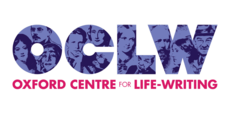Cold War Lives
Cold War Lives
The Cold War Lives project at OCLW brings together historians, archivists, journalists, memoirists, biographers, political scientists, and others to explore the global Cold War, roughly 1945 to 1991. Of greatest importance to the global project is the mantra of collaboration among participants to “de-silo” academic practices including research, writing, and public history outputs. In addition, Cold War Lives at OCLW hosts the Cold War Archival Institute (CWAR).
As for all life-writing projects, Cold War Lives encompasses a broad range of subjects and topics, and also offers participants the chance to explore the concept of Cold War periodization. While the academic focus could be a person, and follow traditional biographical paradigms, the project also explores groups, movements, places, ideas, and material objects to embrace compelling, innovative, and academically rigorous frameworks and methodologies. We offer participants the opportunity to challenge traditional frameworks, concepts, understandings of the Cold War and life-writing. In addition, Cold War Lives challenges participants to understand the intersection of “soft” and “hard” power. It is a novel project with far-reaching implications that include military, cultural, geographic, and social issues.
Founded in 2013, CWAR focuses on archival training and practice to inform and educate practitioners through cooperative strategies. Initially developed by the European Institute at Columbia University in 2013, CWAR moved to the London School of Economics and Political Science, then in 2021 became an institute within the History and Public Policy Institute at the Wilson Center in Washington, DC. At present, CWAR is funded by the Center for Cooperative History, a United States-based 501c3, and works in partnership with the History and Public Policy Program at the University of Maryland.
Each year, CWAR trains ten to twelve advanced MA and PhD students in archival tactics and practice. Fellows are challenged to work cooperatively on individual projects that sit at the point of intersection between history and informed practice. CWAR graduates have continued their careers as academics, policy advisors, diplomats, journalists, philanthropists, authors, filmmakers, and even financiers.
After the initial success of the training programme, the institute expanded to include new and established historians in co-operative work through a long-term initiative, the CWAR Senior Fellows Programme. CARE International became the first topic explored by this group of over two dozen internationally and pedagogically diverse members. CARE was initially formed as a post-World War II food relief organization serving Europe in 1947, and then expanded globally to include self-help and educational programming globally. Because CWAR explores the intersection of hard and soft power, CARE’s private philanthropic work alongside the US army, government, and host governments was an ideal topic. The group has published articles by both single authors and a pairing of academics in a peer-reviewed special issue of the Cold War History Journal, which will be followed by a collection of essays. In addition, members have given talks at academic conferences, and the institute plans to publish its extensive database for educational purposes, curate museum exhibits, and work with policy makers. Future topics may include the International Red Cross, the League of Nations and the United Nations, and Doctors Without Borders. CWAR projects focus on creating academically rigorous output with the potential to inform policy and the public through academic and policy papers, conferences, a database, and public history through education and museum exhibits.



